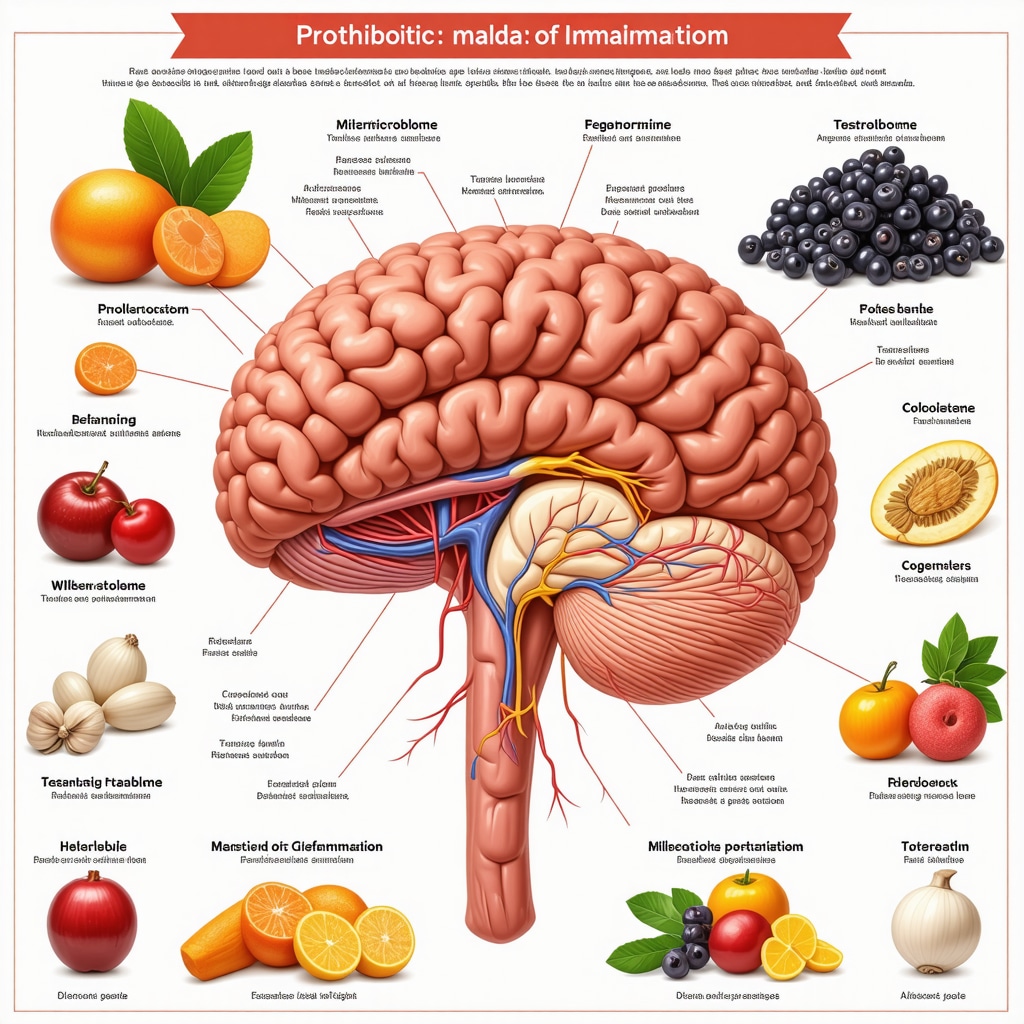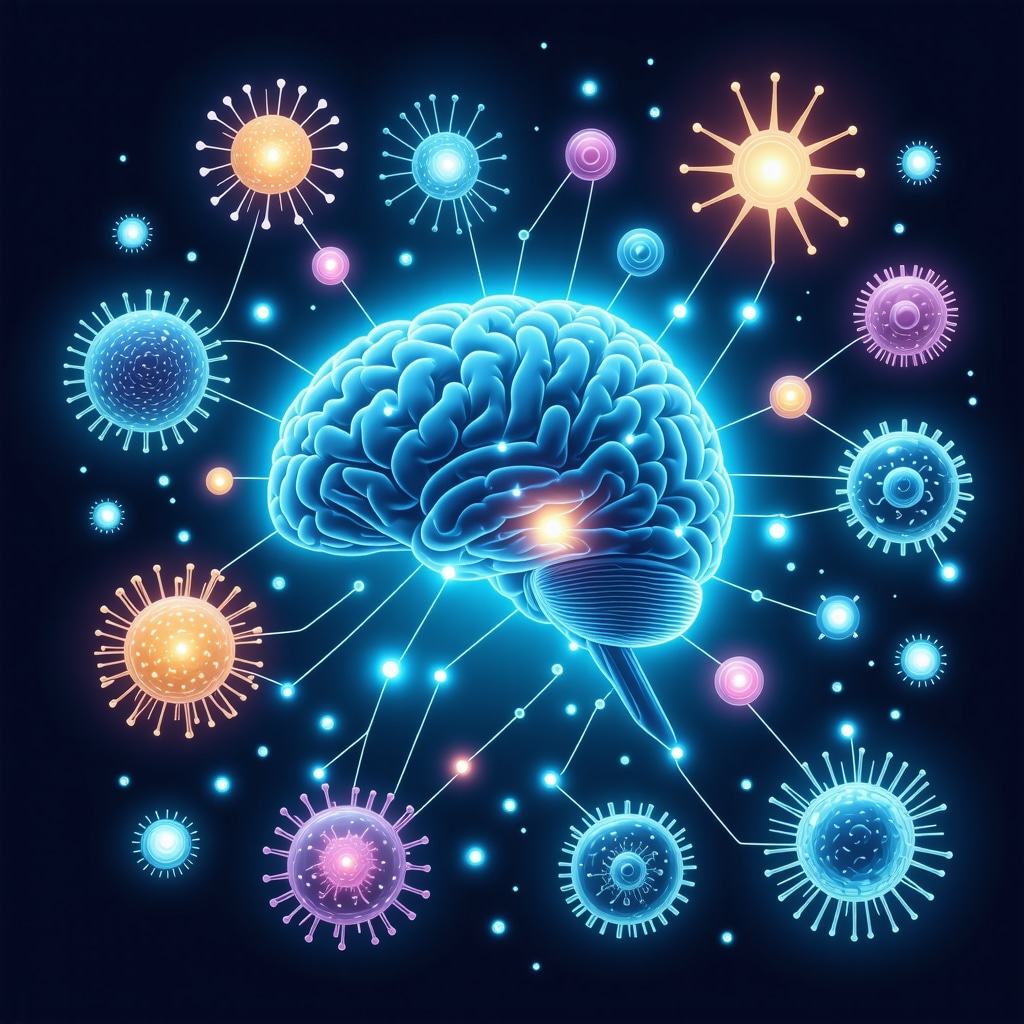Integrative Perspectives on Natural Testosterone Treatment in San Diego
Testosterone optimization for men, particularly in the San Diego region, increasingly embraces holistic paradigms that transcend conventional pharmacological interventions. This shift reflects growing clinical evidence supporting multifactorial approaches integrating lifestyle, nutrition, and bioidentical hormone therapies to restore endogenous androgen balance effectively and sustainably. Addressing low testosterone through natural treatment modalities necessitates understanding the complex endocrine interplays and environmental factors influencing male hormonal health.
Mechanistic Insights into Holistic Testosterone Augmentation
Holistic testosterone treatments leverage physiological pathways such as hypothalamic-pituitary-gonadal axis modulation, reduction of systemic inflammation, and optimization of metabolic health. Nutritional interventions focusing on micronutrients like zinc, magnesium, and vitamin D are foundational, given their direct roles in steroidogenesis. Furthermore, structured resistance training protocols are empirically validated to stimulate endogenous testosterone production via anabolic signaling cascades. San Diego’s unique lifestyle and environmental context provide fertile ground for implementing these strategies synergistically.
How Do Bioidentical Hormone Replacement Therapies Complement Natural Testosterone Boosting?
Bioidentical hormone replacement therapy (BHRT) in San Diego offers a precision medicine approach by administering molecularly identical testosterone formulations that harmonize with the body’s endocrine milieu. Unlike synthetic analogs, BHRT minimizes receptor desensitization and adverse effects, promoting physiological hormone kinetics. When combined with lifestyle modifications, this integration augments overall hormonal homeostasis and mitigates symptomatic burdens of hypogonadism. Exploring bioidentical hormone replacement therapy options in San Diego provides detailed insights into this modality.
Environmental and Psychosocial Considerations in Testosterone Optimization
Emerging research underscores the impact of environmental disruptors, such as endocrine-disrupting chemicals prevalent in urban areas like San Diego, on testosterone synthesis and metabolism. Holistic treatments thus incorporate detoxification strategies and stress management interventions, including mindfulness and cognitive behavioral techniques, to reduce cortisol-mediated suppression of gonadal function. These psychosocial factors are crucial for sustainable hormonal restoration and patient well-being.
Synergizing Lifestyle and Hormone Therapy: A Personalized San Diego Protocol
Optimal natural testosterone treatment in San Diego entails a personalized protocol combining clinical hormone testing, tailored nutrition plans emphasizing hormone-supportive foods, strategic physical activity, and BHRT when indicated. This integrative model aligns with current endocrinological standards and patient-centered care philosophies. For practitioners and patients alike, understanding this synergy is key to maximizing treatment efficacy and minimizing side effects.
For comprehensive guidance on integrating diet and lifestyle with hormone therapy for optimal results, consider reviewing combining BHRT and lifestyle changes for hormone health in San Diego.
What Are the Long-Term Implications of Natural Testosterone Treatments on Men’s Health Outcomes?
Longitudinal data indicate that sustained natural testosterone optimization correlates with improved metabolic parameters, enhanced mood regulation, and reduced cardiovascular risk profiles. However, individual variability necessitates continuous monitoring and adaptive treatment strategies to mitigate potential risks such as erythrocytosis or prostate pathology. Leveraging advanced hormone testing methodologies, as detailed in hormone testing in San Diego for effective BHRT, ensures precision and safety over time.
Encouraging professionals and informed patients to engage further with this topic, we invite exploration of San Diego’s leading-edge resources on San Diego’s best natural testosterone boosting strategies for 2025 and contribute experiential insights for advancing community knowledge.
For authoritative clinical context, the Endocrine Society’s guidelines on testosterone therapy provide evidence-based recommendations: Endocrine Society Clinical Practice Guidelines.
Precision in Hormone Monitoring: Enhancing Natural Testosterone Therapy Outcomes
Effective natural testosterone treatment requires meticulous hormone level tracking to tailor interventions dynamically. Utilizing comprehensive hormone panels that measure total testosterone, free testosterone, sex hormone-binding globulin (SHBG), luteinizing hormone (LH), and estradiol provides a multi-dimensional view of endocrine status. Advanced assays such as liquid chromatography-tandem mass spectrometry (LC-MS/MS) offer superior specificity and sensitivity, minimizing diagnostic errors common in immunoassays. This precision empowers clinicians to adjust bioidentical hormone replacement therapies (BHRT) and lifestyle recommendations with greater accuracy, ensuring optimal androgenic balance and mitigating adverse events.
For detailed protocols on hormone testing and interpretation, visit hormone testing in San Diego for effective BHRT.
Integrative Nutraceuticals and Their Role in Supporting Endogenous Testosterone Production
Beyond fundamental micronutrients, emerging evidence highlights the utility of specific nutraceuticals such as fenugreek extract, ashwagandha, and D-aspartic acid in augmenting endogenous testosterone synthesis. These compounds modulate enzymatic pathways and reduce oxidative stress within Leydig cells, enhancing steroidogenic efficiency. Importantly, their synergistic use alongside dietary optimization and BHRT can potentiate hormonal restoration while supporting overall metabolic health. Selecting high-quality, standardized extracts is critical to efficacy and safety.
Can Combining Advanced Hormone Testing with Tailored Nutraceuticals Revolutionize Testosterone Therapy in San Diego?
This question touches on the frontier of personalized endocrinology. Integrating granular hormonal data with targeted nutraceutical regimens allows for precision modulation of the hypothalamic-pituitary-gonadal axis. However, this approach demands rigorous clinical validation and individualized monitoring to avoid unintended hormonal imbalances or interactions. Current studies, including meta-analyses published in the Journal of Clinical Medicine, underscore promising outcomes but advocate for cautious application within evidence-based practice frameworks.
Addressing Age-Related Testosterone Decline: Personalized Interventions Beyond Chronological Age
Chronological age alone inadequately predicts androgen deficiency and treatment response. Instead, biological age markers, comorbidities, and lifestyle factors critically shape testosterone dynamics. Personalized interventions consider these dimensions, integrating BHRT with anti-inflammatory diets, stress reduction techniques, and exercise regimens optimized for the aging male physiology. This holistic framework enhances vitality and reduces risks associated with conventional testosterone replacement, such as prostate hypertrophy or cardiovascular strain.
Explore more on personalized hormone balancing strategies at hormone balancing therapy San Diego personalized natural solutions.
Expanding the Clinical Dialogue: Patient Engagement and Community Knowledge Sharing
Empowering patients through transparent education and active engagement fosters adherence and optimizes therapeutic outcomes. Clinicians are encouraged to integrate shared decision-making models and facilitate community forums where patients can exchange insights and experiences. Such participatory approaches enhance trust and innovation within the hormone optimization landscape.
We invite readers to share their experiences or questions on natural testosterone optimization in the comments below and to explore additional expert resources on San Diego’s best natural testosterone boosting strategies for 2025.
Epigenetic Influences and Testosterone: Unlocking the Molecular Keys to Hormonal Health
Recent advances in epigenetics have illuminated how gene expression related to testosterone synthesis and metabolism can be modulated by environmental and lifestyle factors. In San Diego, where unique environmental exposures meet diverse lifestyle patterns, understanding epigenetic regulation offers a cutting-edge perspective on natural testosterone treatment. Methylation patterns of genes such as SRD5A2, involved in dihydrotestosterone (DHT) conversion, and AR (androgen receptor) expression influence individual responsiveness to both endogenous and exogenous testosterone modulation. Incorporating nutrigenomics and targeted lifestyle interventions can potentially reverse adverse epigenetic modifications, thereby amplifying the efficacy of natural therapies.
How Can Epigenetic Testing Enhance Personalized Testosterone Therapy Protocols?
Epigenetic testing provides a sophisticated biomarker platform to decode individual variability in hormone metabolism and receptor sensitivity. By assessing DNA methylation and histone modification profiles, clinicians in San Diego can tailor interventions that not only restore testosterone levels but also optimize receptor function and downstream androgenic effects. This approach transcends traditional hormone level monitoring, offering precision in predicting treatment responses and minimizing adverse outcomes. Current pilot studies, including those referenced by the Scientific Reports journal, demonstrate promising correlations between epigenetic markers and testosterone responsiveness.
Chronobiology and Testosterone: Timing Interventions for Maximum Hormonal Impact
Understanding the circadian rhythms governing testosterone secretion introduces a nuanced dimension to natural treatment regimens. Testosterone levels typically peak in the early morning, declining progressively throughout the day. Aligning lifestyle interventions—such as resistance training, nutrient timing, and BHRT administration—with these chronobiological patterns can potentiate endogenous production and improve symptom management. For example, morning workouts combined with nutrient intake rich in zinc and vitamin D may synergistically upregulate hypothalamic-pituitary-gonadal axis activity. San Diego practitioners incorporating chronotherapy principles report enhanced treatment adherence and outcomes.
Integrating Gut Microbiome Modulation as a Novel Adjunct in Testosterone Optimization
An emerging frontier in testosterone optimization involves modulation of the gut microbiome, which impacts systemic inflammation and steroid hormone metabolism. Dysbiosis can impair the enterohepatic circulation of testosterone metabolites and influence aromatase activity, altering estrogen-testosterone balance. Probiotic and prebiotic interventions, alongside dietary strategies rich in polyphenols and fiber, have demonstrated potential in restoring microbial homeostasis and supporting androgenic function. San Diego’s access to fresh, diverse produce facilitates implementation of microbiome-friendly diets, while ongoing clinical trials explore fecal microbiota transplantation as a future option.

What Are the Best Microbiome-targeted Nutritional Strategies to Support Testosterone Levels?
Optimizing the gut microbiome for testosterone enhancement entails a multi-faceted nutritional approach. Fermented foods such as kefir and kimchi provide beneficial bacterial strains, while polyphenol-rich foods like berries and green tea exert anti-inflammatory effects. Omega-3 fatty acids from fish and nuts further modulate gut barrier integrity and systemic inflammation. Tailoring these dietary components based on individual microbiome sequencing data allows for personalized interventions that maximize natural testosterone synthesis and reduce aromatase-mediated estrogen conversion. Comprehensive reviews in the Frontiers in Endocrinology journal emphasize the clinical relevance of microbiome-endocrine interactions.
Advanced Psychological Conditioning and Neuroendocrine Feedback Loops in Testosterone Therapy
Psychosocial stress profoundly influences the hypothalamic-pituitary-adrenal (HPA) axis, with downstream suppression of gonadotropin-releasing hormone (GnRH) secretion and testosterone production. Integrating advanced behavioral therapies such as biofeedback, neurofeedback, and resilience training into natural testosterone treatment protocols can recalibrate neuroendocrine feedback loops. San Diego’s innovative clinics increasingly incorporate these modalities, which complement pharmacological and lifestyle interventions by targeting the neuropsychological substrates of hypogonadism.
For practitioners seeking to deepen their understanding of these integrative approaches, exploring the synergy between neuroendocrine conditioning and hormone therapy is invaluable. We encourage visiting Integrative Neuroendocrine Approaches to Testosterone Optimization in San Diego for comprehensive protocols and case studies.
Epigenomic Modulation: The Next Frontier in Testosterone Regulation
Emerging evidence highlights the pivotal role of epigenetic modifications in fine-tuning androgen biosynthesis and receptor sensitivity. Epigenomic interventions, such as dietary methyl donors and histone deacetylase inhibitors, offer potential to recalibrate gene expression pathways involved in testosterone metabolism, particularly targeting genes like SRD5A2 and AR. These molecular strategies complement conventional BHRT, enabling personalized protocols that address the underlying genomic plasticity of hypogonadism.
Chronotherapeutics: Synchronizing Hormonal Interventions with Endogenous Rhythms
Adopting chronotherapeutic principles optimizes testosterone restoration by aligning therapeutic actions with intrinsic circadian patterns. Morning administration of bioidentical testosterone and nutrient timing—especially zinc and vitamin D intake—enhance hypothalamic-pituitary-gonadal axis responsiveness. This temporal precision mitigates receptor downregulation and supports sustained anabolic signaling, a tactic increasingly implemented by San Diego endocrinologists seeking maximal efficacy with minimal adverse outcomes.
Gut-Endocrine Axis: A Paradigm Shift in Hormonal Homeostasis
The gut microbiome’s influence on systemic inflammation and steroid hormone metabolism introduces a novel dimension to testosterone optimization. Targeted probiotic therapy, prebiotic-rich diets, and polyphenol supplementation modulate aromatase activity and enterohepatic testosterone recycling, thereby preserving androgenic balance. San Diego’s diverse culinary landscape facilitates incorporation of fermented foods and omega-3 rich sources, fostering microbial environments conducive to endogenous testosterone elevation.

How Can Advanced Neuroendocrine Conditioning Enhance Long-Term Testosterone Therapy Outcomes?
Advanced neuroendocrine conditioning techniques, including biofeedback and neurofeedback, recalibrate hypothalamic-pituitary-adrenal (HPA) axis dysregulation that often underpins secondary hypogonadism. By attenuating cortisol-induced gonadotropin suppression and enhancing GnRH pulsatility, these modalities potentiate endogenous testosterone synthesis. Integration with BHRT and lifestyle modifications fosters a robust, multidimensional treatment paradigm with superior clinical outcomes. Recent clinical reviews, such as those published by the Endocrine Society, corroborate the efficacy of incorporating neuroendocrine strategies within testosterone optimization protocols.
Leveraging Precision Medicine and Digital Biometrics in Hormonal Therapy Personalization
Digital health technologies now enable real-time monitoring of hormonal fluctuations through wearable biosensors and mobile health platforms. Coupling these data streams with machine learning algorithms facilitates dynamic adjustment of BHRT dosages and lifestyle interventions, tailored to the patient’s unique endocrinological milieu. This precision medicine approach, pioneered in San Diego’s advanced clinics, enhances therapeutic responsiveness and minimizes adverse effects, embodying the future of personalized androgen restoration.
Integrative Psychoneuroimmunology: Bridging Mind-Body Interactions in Testosterone Therapy
Psychoneuroimmunological frameworks elucidate the bidirectional interactions between psychological stress, immune function, and hormonal regulation. Incorporating resilience training, mindfulness-based stress reduction, and anti-inflammatory nutritional protocols synergistically modulates neuroimmune pathways that influence testosterone synthesis. Such integrative therapies address the multifactorial etiology of hypogonadism, fostering holistic restoration of male vitality.
We encourage clinicians and patients to delve deeper into these sophisticated strategies and participate in the evolving discourse on natural testosterone optimization. Engage with San Diego’s foremost expert resources and contribute to advancing personalized care paradigms by visiting San Diego’s best natural testosterone boosting strategies for 2025.
Expert Insights & Advanced Considerations
Integrative Chronotherapy Enhances Testosterone Regulation
Synchronizing testosterone optimization protocols with endogenous circadian rhythms can significantly amplify therapeutic outcomes. Morning-aligned interventions—such as timed bioidentical hormone replacement therapy (BHRT), nutrient intake rich in zinc and vitamin D, and resistance training—leverage natural hormonal peaks to maximize anabolic signaling and receptor responsiveness, minimizing risks of receptor desensitization.
Epigenetic Profiling Unlocks Personalized Hormone Optimization
Incorporating epigenetic testing into clinical practice offers nuanced insights into individual variability in androgen receptor sensitivity and steroidogenic enzyme activity. By mapping methylation patterns of key genes like SRD5A2 and AR, clinicians can tailor nutrigenomic and lifestyle interventions that recalibrate gene expression, thereby enhancing endogenous testosterone synthesis and improving responsiveness to BHRT.
Gut Microbiome Modulation as a Novel Adjunct in Androgen Therapy
Emerging evidence highlights the gut microbiome’s role in regulating systemic inflammation and aromatase activity, pivotal in maintaining estrogen-testosterone balance. Strategically designed probiotic and prebiotic regimens, alongside polyphenol-rich diets, can restore microbial equilibrium, supporting endogenous testosterone metabolism and mitigating estrogenic conversion.
Advanced Neuroendocrine Conditioning Optimizes Long-Term Hormonal Health
Techniques such as biofeedback and neurofeedback recalibrate the hypothalamic-pituitary-adrenal (HPA) axis by reducing cortisol-mediated suppression of gonadotropin-releasing hormone (GnRH). These modalities, integrated with BHRT and lifestyle interventions, create a multidimensional therapeutic framework that enhances endogenous testosterone production and psychological resilience.
Precision Medicine and Digital Biometrics Facilitate Dynamic Therapy Adjustment
Utilizing wearable biosensors and machine learning algorithms enables real-time hormone monitoring and personalized dose modulation. This approach, increasingly adopted in San Diego clinics, refines BHRT delivery and lifestyle recommendations, optimizing efficacy while minimizing side effects in testosterone treatment.
Curated Expert Resources
- Endocrine Society Clinical Practice Guidelines: Authoritative evidence-based recommendations on testosterone therapy, providing comprehensive clinical frameworks for hypogonadism management. Access Guidelines
- Journal of Clinical Medicine Meta-Analyses on Nutraceuticals: Rigorous reviews on compounds like fenugreek and ashwagandha in testosterone augmentation, essential for evidence-based nutraceutical integration. Explore Meta-Analyses
- Frontiers in Endocrinology – Microbiome-Endocrine Interactions: In-depth analyses of gut microbiome influences on steroid metabolism, crucial for emerging adjunctive therapies. Read Full Review
- Scientific Reports on Epigenetic Markers in Testosterone Response: Groundbreaking studies correlating DNA methylation profiles with hormonal therapy responsiveness, informing precision medicine. View Research
- Integrative Neuroendocrine Approaches to Testosterone Optimization in San Diego: Clinical protocols combining behavioral therapy and hormone treatment for holistic hypogonadism care. Explore Protocols
Final Expert Perspective
Natural testosterone treatment in San Diego has evolved into a sophisticated, multidimensional discipline that transcends traditional hormone replacement paradigms. By integrating chronotherapeutic timing, epigenetic insights, gut microbiome modulation, neuroendocrine conditioning, and precision digital biometrics, clinicians and patients can achieve nuanced, sustainable androgen homeostasis. This comprehensive approach not only maximizes efficacy but also aligns with personalized medicine’s ethos, addressing the complex biological and psychosocial determinants of male hormonal health.
For a deeper engagement with these advanced methodologies and to contribute your clinical experience or questions, explore San Diego’s best natural testosterone boosting strategies for 2025 or contact expert practitioners directly via our consultation page. Embracing these expert-led innovations is key to redefining testosterone optimization in the modern era.

